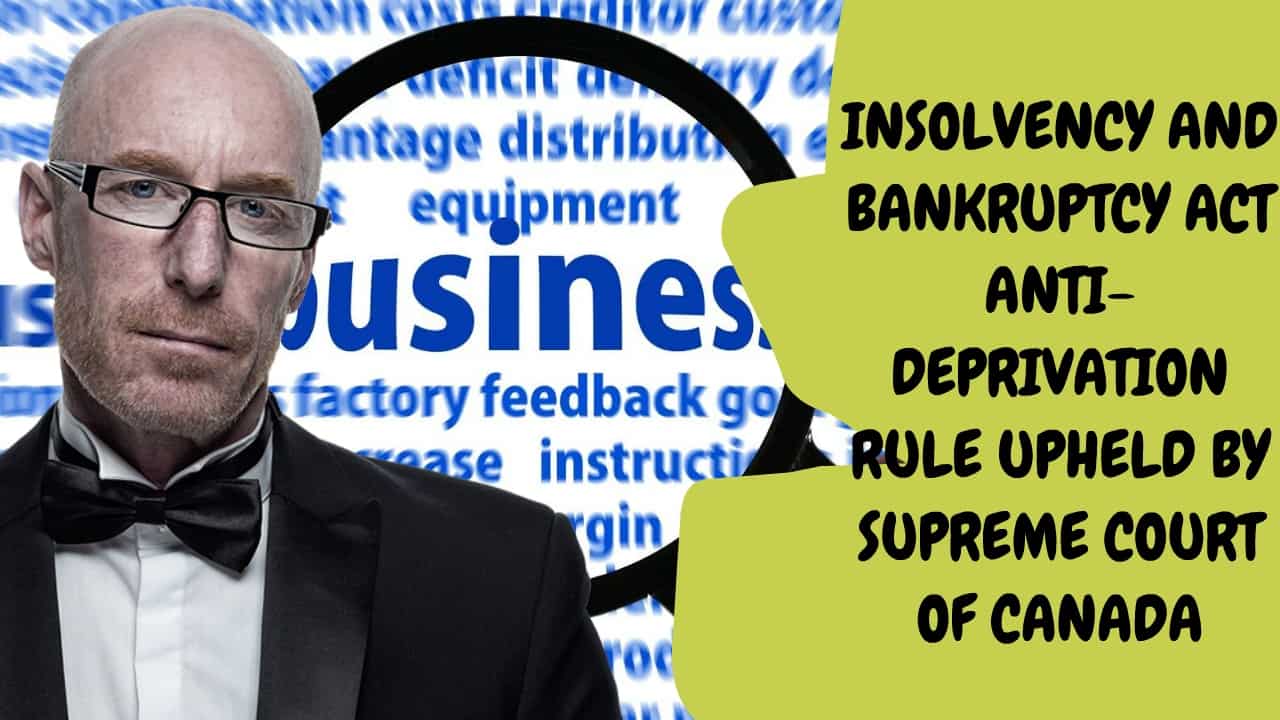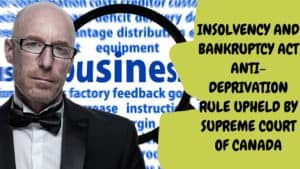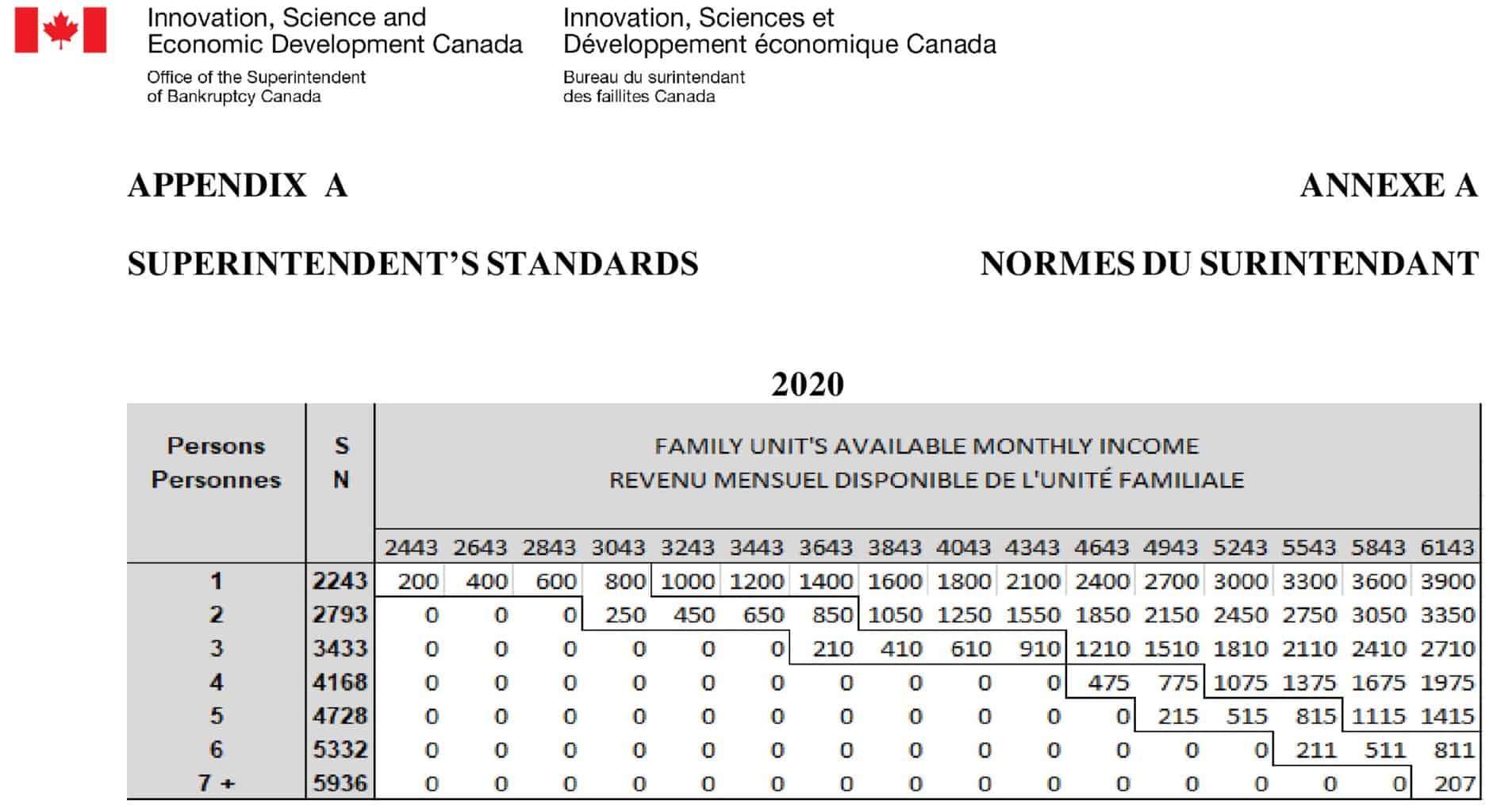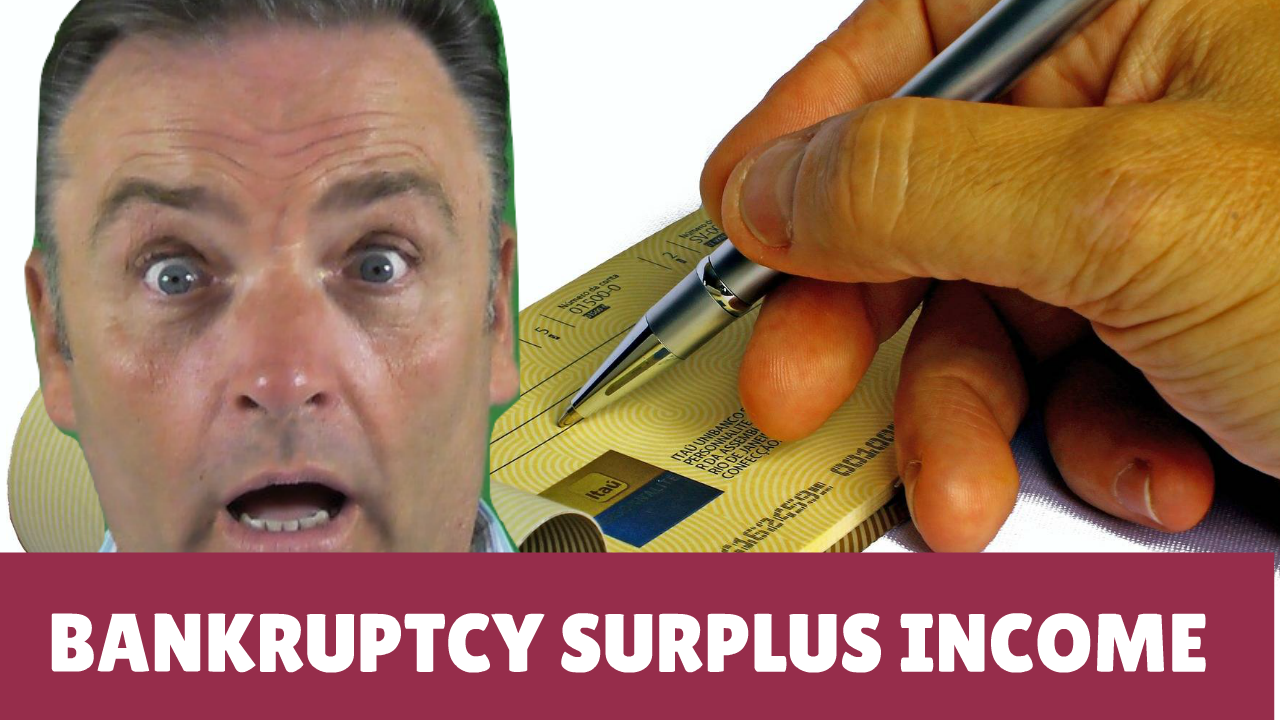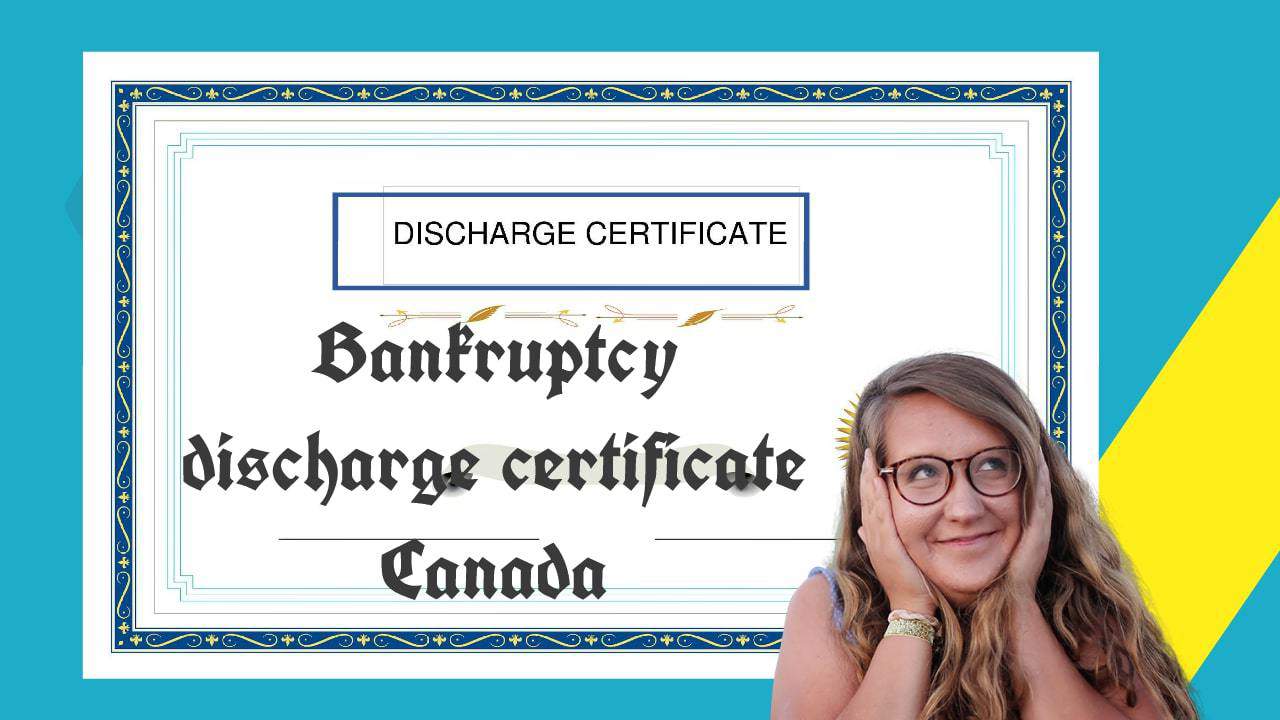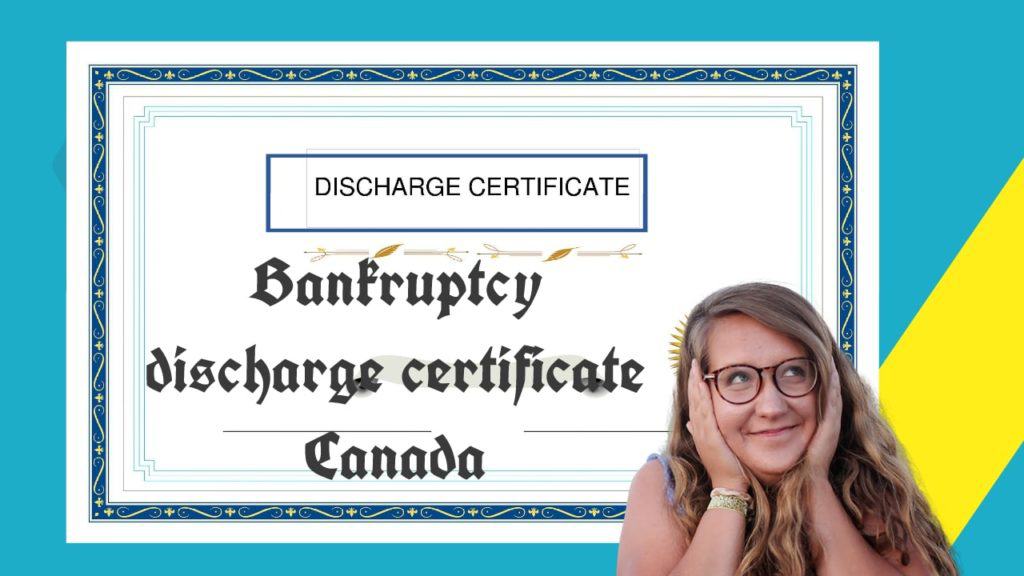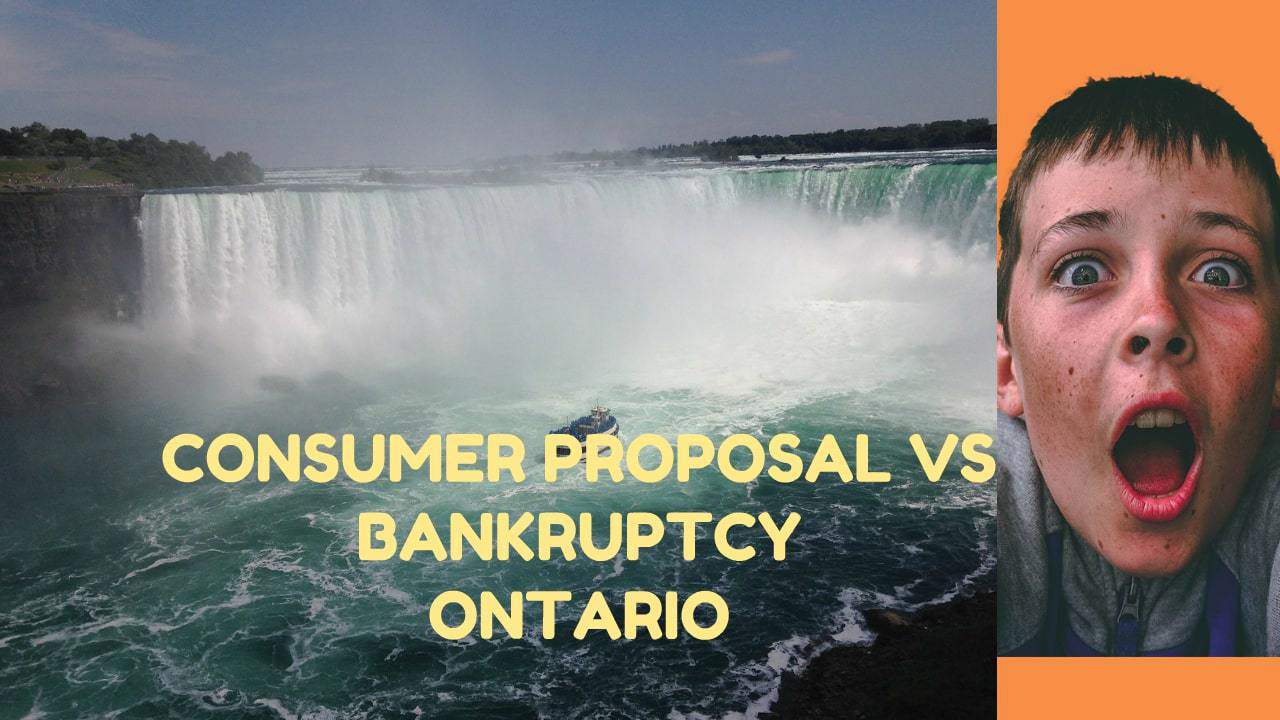
The Ira Smith Trustee Team is absolutely operational and Ira, in addition to Brandon Smith, is readily available for a telephone consultation or video meeting. We hope that you and your family are safe and healthy.
If you would prefer to listen to an audio version of this bankruptcy meaning Brandon’s Blog, please scroll down to the bottom and click on the podcast.
Bankruptcy meaning introduction
I recently read a decision of the Supreme Court of Nova Scotia in Bankruptcy and Insolvency. It was an interesting decision about a bankrupt who essentially absented himself and became AWOL after filing for bankruptcy. I will describe the case below. However, it did get me thinking that perhaps Brandon’s Blog about the duties of the various stakeholders in the bankruptcy process would be of interest. Put another way, if everyone does not do their part, what is the bankruptcy meaning?
The Merriam-Webster dictionary provides a bankruptcy meaning definition as:
“1a: a debtor (such as an individual or an organization) whose property is subject to voluntary or involuntary administration under the bankruptcy laws for the benefit of the debtor’s creditors
b: a person who becomes insolvent
2: a person who is completely lacking in a particular desirable quality or attribute
a moral bankrupt”
In this bankruptcy meaning Brandon’s Blog, I will focus on the first definition, as that is the one I am qualified to answer.
Bankruptcy meaning: The stakeholders
There are various players in the bankruptcy process. The primary ones are:
- The person or company, the debtor, who is now bankrupt.
- The licensed insolvency trustee (formerly called a trustee in bankruptcy) (Trustee) who administers the bankruptcy process.
- The creditors who are owed money.
- The Office of the Superintendent of Bankruptcy (Canada) (OSB) who regulates and supervises all administrations under the Bankruptcy and Insolvency Act (Canada) (BIA) in Canada.
I will leave the duties of the bankrupt until the end. That description in the bankruptcy meaning list will flow nicely into my description of the Nova Scotia bankruptcy court case.
Bankruptcy meaning: Duties of the Trustee
There are of course various statutory steps that a Trustee must take in any bankruptcy administration. It is also obvious that the Trustee must perform those steps properly.
In addition, the OSB has established a Code of Ethics for Trustees. The Code of Ethics for Trustees is an integral part of the BIA General Rules.
The Code establishes a standard for services to be provided by Trustees. It addresses:
- the information that Trustees must provide to creditors;
- the treatment of funds entrusted to Trustees;
- conflicts of interest; and
- the sale and purchase of the property of a business or individual who has filed for bankruptcy.
It also contains standards for advertising by Trustees and for maintaining the good reputation of the Trustee community.
Rules 34 through 53 inclusive of the BIA General Rules contain what the bankruptcy meaning of the Code of Ethics for Trustees is. You can read them by clicking on this Code of Ethics for Trustees link.
There are also various Directives issued by the OSB that guide the statutory steps that a Trustee must take. Examples of these Directives are:
- Directive No. 1R2 Counselling in Insolvency Matters – This Directive deals with how the Trustee should conduct the required financial counselling sessions.
- Directive No. 4R Delegation of Tasks – A Directive about when certain Trustee or administrator tasks can be delegated to others.
- Directive No. 5R4 – Estate Funds and Banking – How a Trustee must handle estate trust funds.
- Directive No. 6R3 – Assessment of an Individual Debtor – The steps to be taken in assessing the financial situation of the debtor, explaining the various options available and what bankruptcy duties are.
- Directive No. 11R – Surplus Income – When assessing the financial situation of the debtor who becomes bankrupt, how to calculate the surplus income payments obligation of the bankrupt person.
- Directive No. 17 – Retention of Documents by the Trustee – This one is self-explanatory.
These are but a handful of the Directives issued by the OSB that Trustees must follow.
Bankruptcy meaning: Duties of creditors
In the bankruptcy meaning context, creditors have certain duties which can better be described as rights. Creditors are always invited and welcome to participate in the bankruptcy process. It begins with filing a Form 31 Proof of Claim as evidence of the debt owed to them by the bankrupt.
Once they file their claim in the bankruptcy estate, the creditor now has the status to fully participate in the administration of the bankruptcy estate. The filing of the proof of claim allows the creditor to vote, either in person or by proxy. They now have the authority to participate and vote at the First Meeting of Creditors. They can vote for the appointment of Inspectors.
A creditor may notify the Trustee of any kind of inappropriate activities or transactions on the part of the bankrupt that hurt the interests of the creditors. For instance, a creditor may have knowledge of assets or deals that the bankrupt failed to declare. In many cases, creditors who have dealt with the debtor over many years will have better information than the Trustee initially can gain. A Trustee always welcomes this kind of assistance from creditors. If a creditor thinks there is misconduct or illegal activities on the part of the insolvent the creditor should advise the Trustee and the OSB.
A creditor can oppose a personal bankrupt’s discharge from bankruptcy. The grounds for opposing are set out in section 173 of the BIA. The creditor must inform the Trustee and the bankrupt of the opposition and the reasons in the proper form.
By filing the opposition, the bankrupt’s discharge hearing must now go to court to be adjudicated. The Trustee cannot provide the bankrupt with an automatic discharge, even if they have fulfilled all of their duties. The creditor will provide its evidence to the court to support the opposition. The Trustee must file a report on the conduct of the bankrupt both before and during the bankruptcy administration.
Based on all the evidence, the court will then decide what kind of discharge the personal bankrupt is entitled to; absolute discharge, conditional, and/or a suspended discharge. In certain cases, the court may issue a refusal to the bankrupt. That is what happened in the Nova Scotia case I will shortly describe.
This is what the bankruptcy meaning for the rights and duties of creditors are.

Bankruptcy meaning: Advising the bankrupt or the officer of the bankrupt corporation of duties
The Trustee must explain to the bankrupt or the officer of a bankrupt company, his/her responsibilities. The responsibilities are found in sections 158 and 159 of the BIA. The Trustee must also explain the bankruptcy offences. Those are outlined in sections 198, 199, 200, and 204 of the BIA.
The minimum level of information a Trustee can give to the bankrupt or the officer of a bankrupt corporation is (as applicable):
- information on bankruptcy for consumer debtors;
- the above essential passages from the Act;
- responsibilities of a bankrupt or the officer of the bankrupt company; and
- debtor financial information (type and guide).
In all cases, the bankrupt or the officer of the bankrupt company has to be served with a copy of the relevant sections of the BIA. The Trustee must also get an acknowledgment from the bankrupt, or officer of the bankrupt corporation, that she or he has actually been provided with, and understands his/her obligations. The signoff by the bankrupt/the company’s officer needs to be kept on file by the Trustee.
If a bankrupt or officer of the bankrupt company declines to sign, regardless of being offered, Trustees have to keep in their file details of the refusal (i.e. evidence of service as well as details as to the refusal).
Bankruptcy meaning: The duties of the bankrupt or the officer of the bankrupt corporation
The focus of the BIA is for personal bankrupt, to return the honest but unfortunate debtor back to society free of his or her debts. The premise is that the bankrupt, or the officer of the bankrupt corporation, will fulfill their duties with integrity and honesty. The duties are outlined in the OSB’s Directive No. 26. If you are interested, you can read them HERE.
But what if they don’t? What if the individual bankrupt does not fulfill all of their duties and essentially absents themself from the process once they have filed their assignment in bankruptcy. In that case, the Trustee has an obligation to oppose the bankrupt’s application for discharge and bring the matter to court. What is the bankruptcy meaning in such a case?
That is what happened in the Nova Scotia case that I will tell you about now. I believe it is very instructive.
Bankruptcy meaning: Why a bankrupt’s discharge hearing may come to court
The substantial majority of bankrupts execute their obligations under the BIA. As a result, only a minority of bankruptcies end up in court. Mr. Jewkes’ case is one of them.
The usual factors for a bankruptcy case needing to involve the court include:
- outstanding financial disclosure; and/or
- surplus income payment obligations.
Discharges for third or more bankruptcy filings also need to come to court for a discharge hearing. Occasionally, a creditor objects to the bankrupt’s discharge. All matters are listened to on their merits and a decision is rendered as appropriate for the particular bankruptcy meaning.
Sometimes, there has actually been a lack of action in a bankruptcy file due to a bankrupt’s own difficulties. She or he may have a mental or physical illness. They may have not have been able to communicate with the Trustee for completely valid reasons. They might have genuinely misunderstood the obligations incumbent upon them. It is the responsibility of the Trustee and, that falling short, the court, to set things straight.
And then there is Mr. Jewkes. None of the factors where the Trustee or the court could excuse him for a simple oversight or mistake which can easily be corrected were present.
Bankruptcy meaning: The Nova Scotia case
Mr. Jewkes filed an assignment in bankruptcy in 2019. He cited “relationship breakdown” as the reason for his bankruptcy. This was his first bankruptcy. He showed income on filing to put him just below the OSB’s guidelines for paying surplus income. His assets were minimal, although he did identify the sale of his old vehicle and a mobile home with little or no equity just prior to his bankruptcy.
His creditors were the normal run of the mill kind of creditors in consumer files:
- credit cards;
- an unsecured line of credit;
- a collection agency was after him, possibly for another credit card debt;
- two mobile phone accounts; and
- a utility company.
And that is where it ended. He has actually not provided the required income and expense information. He has not offered the Trustee with details required to prepare and file his pre-bankruptcy or post-bankruptcy income tax returns. He has not gone to his two mandatory credit counselling sessions. He has not complied with his payment arrangement for the Trustee’s fee. He has not given corroboration or accounting for his pre-bankruptcy vehicle and mobile home sales. His discharge hearing was held in August 2020. He did not show up for his own discharge hearing either by video or telephone.
The Trustee requested that the hearing be adjourned. The Registrar in bankruptcy court was not prepared to use more court resources and he denied the Trustee’s request.
Rather, he had enough and let his feelings be known. The bankrupt got his stay of proceedings. Notice of the bankruptcy was mailed out to the creditors. The collection calls from creditors or collection agencies stopped.
Garnishments, if such existed, ended. After that, this bankrupt went on with life and took the attitude that everyone else can take a hike.
Bankruptcy meaning: The Registrar’s decision
The Registrar wanted to send a bankruptcy meaning message that this kind of behaviour will not be tolerated. The Registrar decided that this bankruptcy meaning message will be sent by the:
- bankrupt’s application for discharge being refused;
- bankrupt having leave to apply on his own for discharge once he has fulfilled all of his duties;
- Trustee finishing the administration and applying for its discharge forthwith;
- Trustee being directed, upon its discharge, to write to all known creditors advising of the Trustee’s discharge and that the effect under the BIA is that the stay of proceedings protecting the bankrupt has ended and all creditors are free to begin or resume collection action against him.
This fourth point is not normal. It is obvious that the Registrar was fed up with this bankrupt and others who feel they can avoid performing their duties. The Registrar wanted to send a strong bankruptcy meaning message.

Bankruptcy meaning summary
I hope you have enjoyed this bankruptcy meaning Brandon’s Blog. Hopefully, you have better insight now into the fact that a sick insolvent company’s business can be saved by doing a sale of its assets to a healthy organization.
Do you or your company have too much debt? Are you or your company in need of financial restructuring? The financial restructuring process is complex. The Ira Smith Team understands how to do a complex restructuring. However, more importantly, we understand the needs of the entrepreneur or the person who has too much personal debt.
You are worried because you are facing significant financial challenges. It is not your fault that you are in this situation. You have been only shown the old ways that do not work anymore. The Ira Smith Team uses new modern ways to get you out of your debt troubles while avoiding bankruptcy. We can get you debt relief freedom.
The stress placed upon you is huge. We understand your pain points. We look at your entire situation and devise a strategy that is as unique as you and your problems; financial and emotional. The way we take the load off of your shoulders and devise a debt settlement plan, we know that we can help you.
We know that people facing financial problems need a realistic lifeline. There is no “one solution fits all” approach with the Ira Smith Team.
That is why we can develop a restructuring process as unique as the financial problems and pain you are facing. If any of this sounds familiar to you and you are serious in finding a solution, contact the Ira Smith Trustee & Receiver Inc. team today.
Call us now for a free consultation.
We will get you or your company back on the road to healthy stress-free operations and recover from the pain points in your life, Starting Over, Starting Now.
The Ira Smith Trustee Team is absolutely operational and Ira, in addition to Brandon Smith, is readily available for a telephone consultation or video meeting. We hope that you and your family are safe and healthy.



